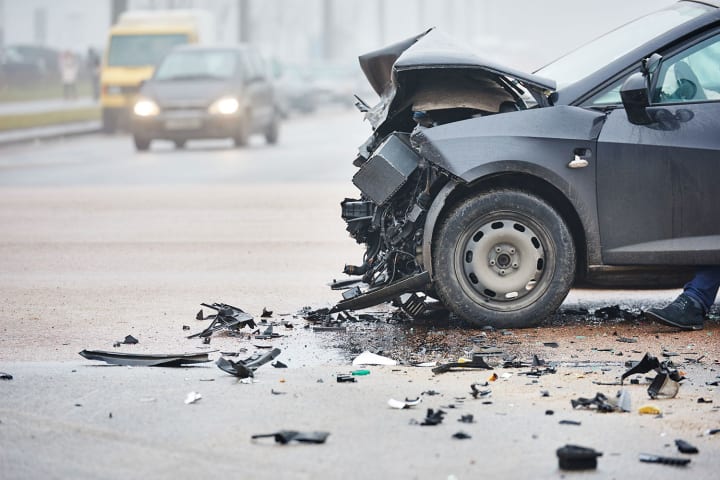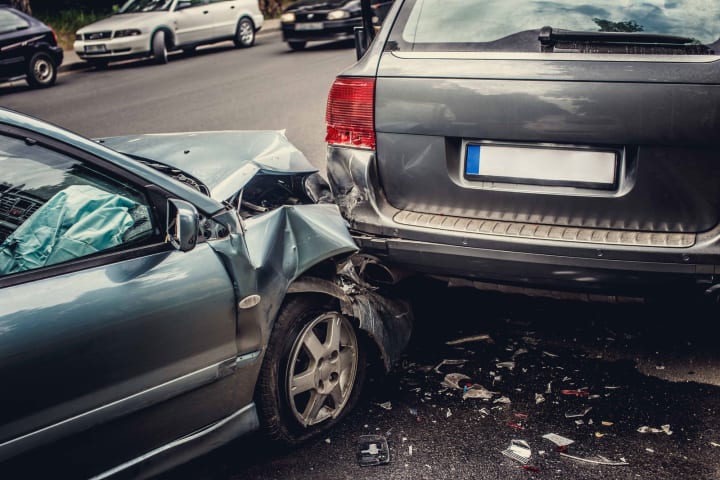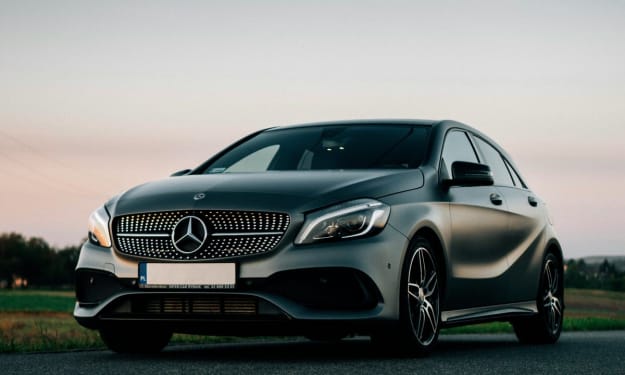Terms to Know Before Buying Car Insurance
When you have a car, buying car insurance is definitely essential in case anything happens to you or your car. To get started, here are terms to know before buying car insurance.

OK, so you've bought a car, or you've had a reliable car for a while now, but don't have any car insurance. But if you're constantly taking your car out, either to work, or going out with friends, you'll never know what would happen on the road. It's crucial to have car insurance, because if your car gets into an accident or something else major happens, you can possibly lose a lot of money.
Don't lose half, or more than half, of your money on your car from an accident, get car insurance! It's literally a life, and bank, saver. However, buying car insurance isn't as simple as you think it is — but it's not too complicated, either. So, before you buy car insurance, there are terms to understand along the way. For a more smoother purchase, here are terms to know before buying car insurance.
Deductible
From the list of terms to know before buying car insurance, an insurance deductible is literally the amount of money you will pay in an insurance claim before the coverage begins to pay you. Since it’s your financial responsibility and part of your insurance contract, you must figure out the amount of money for your deductible before a claim gets paid. And once you start paying your deductible, your insurance company then agrees to pay you the rest — depending on the policy limits and conditions.
Premium
When it comes to insurance premiums, it’s the money you, or a business, is paying for the insurance policy. While the premium is known as the income by the insurance company, once it’s earned, it also represents a liability to the insurer and must provide coverage for the claims that are being made against the policy.
Liability Coverage
For someone who’s driving a vehicle, and either harms someone or their property, liability coverage is the insurance that comes into play. It only covers injuries or damages to third parties as well as their property. However, not the driver or the driver’s property.
The only two components to liability coverage insurance is bodily injury liability and property damage liability. In addition, liability insurance doesn’t have any deductibles.

Collision Coverage
From the terms to know before buying car insurance, collision coverage is the insurance that helps repair, or even replace, your car if anything happens to it, such as an accident with another car or you run into a tree.
And if you’re leasing you car, collision coverage is most likely required by the lender. Yet, if your car is already paid for, this insurance is optional on your car insurance policy.
Comprehensive Coverage
Now, if your vehicle is stolen or damaged in any way that’s not a collision, such as a fire, falling objects, animal damage, theft, etc. then Comprehensive Coverage is the one that pays to replace or repair your car. But if your leasing you car, your lender will most likely want you to have comprehensive coverage. And if the car is totally yours, then it’s up to you whether you have this coverage or not.
Also, stay away from bad habits that can damage your car... Constantly covering your car is great in the long run.
Personal Injury Protection
If you possibly get injured from an accident or anything related to a vehicle, then Personal Injury Protection (PIP) will certainly be beneficial for you. Even though it’s not available in certain states, it’s still required that people have this type of insurance. When it comes to terms to know before buying car insurance, this protection is definitely crucial since it deals with your health — and your personal health is much more important than your car’s state.
Note that this has little to do with healthcare coverage. PIP can help even cover your health insurance deductible or pay costs that are over the limits if you’re hurt from an accident.

Property Damage Coverage
If you crash into another car and you damage the other person’s vehicle, or other types of property, then this helps pay for the damages. So, if you happen to run into the back of someone’s car, accidentally scrap the side of their vehicle, or anything along those lines, Property Damage Coverage is there to help you pay for the other person’s vehicle. This can even help if you crash into someone’s fence or a part of their house.
Uninsured Motor Vehicle Coverage
In general, motorists are supposed to have liability insurance in almost every state in the US. However, there are motorists who still drive without the insurance. And if they so happen to crash into your car, they probably won’t have enough money to pay for your damages.
However, if the motorist does have uninsured motorist insurance and gets into an accident with another motorist who’s at fault but doesn’t have insurance, then your insurance company will be there to help pay your medical expenses and other health damages.
Gap Insurance
If you’re leasing or loaning a car, Gap Insurance will help provide valuable financial protection during the first few years of your car. And if a loss occurs, then this insurance will certainly pay the difference between the actual cash value of the car and the current outstanding balance of your lease/loan. There are times where it can pay for your regular insurance deductible.
No-Fault Insurance
Out of the terms to know before buying car insurance, No-Fault is designed to cover personal injury claims and even lower potential litigation costs. This type of insurance often includes or even requires Personal Injury Protection (PIP), which will lead to paying each insured’s medical care after an accident — no matter who's at fault.
However, this insurance is optional.
About the Creator
Rachel Blanchard
Does hot yoga, has 3 Yorkies and a hamster, and listens to John Mayer religiously.






Comments
There are no comments for this story
Be the first to respond and start the conversation.